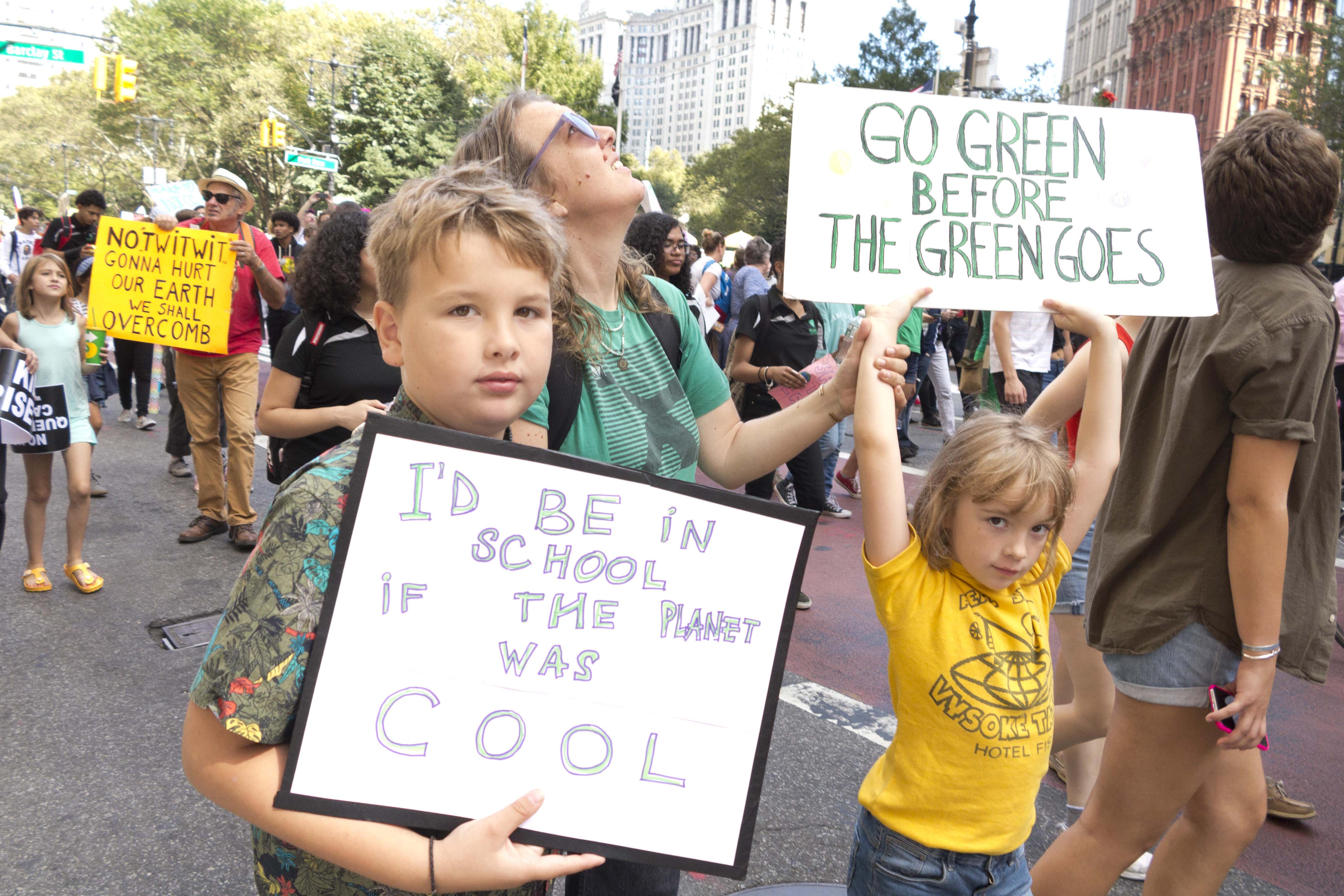‘Almost two thirds’ of children have eco-anxiety – what can parents do to help?
An environmental charity is warning that young people are struggling amid climate change news.

New research shows that nearly two thirds of secondary school children are experiencing mental health symptoms associated with concern about the environment.
Extreme weather, melting ice caps, increased droughts and animal extinction are all issues making young people fearful of the planet’s future.
A massive 64% of children aged between 11 and 16, surveyed by youth empowerment and conservation charity Action for Conservation, said that they were experiencing ‘eco-anxiety’.
In addition, almost a quarter of the 1,000 children who took part (23%) stated that they suffered symptoms associated with the condition at least once a week.
The research also uncovered a worrying statistic that 43% of children spend as little as eight and a half minutes in nature daily, compared to the recommended minimum of one hour.
The charity defines eco-anxiety as “a sense of hopelessness about the state of the planet, including climate breakdown and the loss of nature, which can lead to feelings such as fear, stress and anger”.
How does eco-anxiety affect young people?
An abundance of research shows that eco-anxiety affects different people in different ways to varying degrees. However, the general consensus indicates that if children are beginning to experience slight cases of anxiety and stress on a regular basis coupled with disrupted sleep, they may be suffering from the condition.
It can feel overwhelming and isolating for young people and lead to mental health issues such as depression and anxiety.
Hendrikus van Hensbergen, founder and CEO for Action for Conservation, said: “Children aged between 11 and 16 and more susceptible to eco-anxiety because secondary school students are exposed to environmental issues for longer through education, local experience, social media, family and friends, and the news.
“This concern is compounded by a lack of opportunity for young people to affect real change. We know this concern extends globally from the ongoing youth climate strikes that started in 2018 and that young people care deeply about the future of the planet. But [they] feel they have little power to tackle issues like the climate crisis, and that adults in positions of power, including governments aren’t enacting the changes young people want to see.”
What can parents do to help?
Linda Aspey, accredited psycho-therapeutic counsellor and climate psychologist, advised parents to learn and teach their children about climate change in order to help them understand the science around it.
She said: “You don’t need to be a climate scientist but having a basic understanding of both the simple science and how complex our emotional responses are (including your own) is invaluable.
“Also remember that children don’t experience the world in the same way as you do and their concerns may be more immediate, like ‘How am I going to get to see my friends today if we can’t get to school?’ or they may be very stark, [for example], ‘Are we all going to die?’.”
She suggested that parents should build a network of people to talk to about climate change and the anxiety surrounding it.
But simply listening to your children can be the most important way to help them deal with their climate anxiety.
Aspey added: “Ask them what they know about climate change and how they feel. And then just listen, really listen.
“Not when you’re texting on your phone but giving them your genuine uninterrupted attention. Deep listening can be transformative and whilst this certainly won’t be the only conversation you have about climate change, their experience of it will pave the way for more.”
Matt Buttery, CEO of parenting programme Triple P in the UK and Ireland and an honorary associate professor at the University of Warwick, added that taking a calm stance and tone of voice during these conversations is very important.
He said: “Despite many children feeling powerless, it is essential for parents to stay positive and calm when talking about the environment and their children’s futures”
Children learn a great deal about how to manage their behaviour and how to deal with difficult situations from their parents, Buttery said.
“By demonstrating calm and resilient behaviour, parents can have a positive influence on their children’s ability to cope with adversity, reducing the effects of eco-anxiety. “
Bookmark popover
Removed from bookmarks